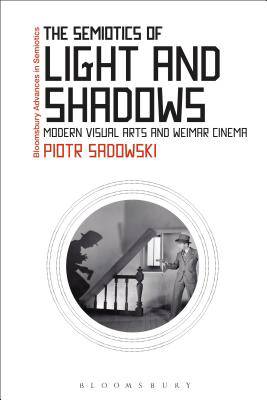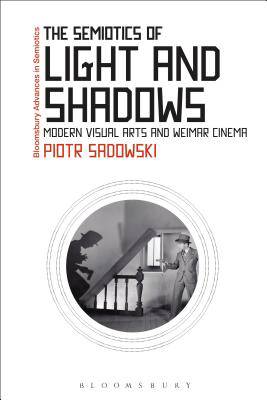
Je cadeautjes zeker op tijd in huis hebben voor de feestdagen? Kom langs in onze winkels en vind het perfecte geschenk!
- Afhalen na 1 uur in een winkel met voorraad
- Gratis thuislevering in België vanaf € 30
- Ruim aanbod met 7 miljoen producten
Je cadeautjes zeker op tijd in huis hebben voor de feestdagen? Kom langs in onze winkels en vind het perfecte geschenk!
- Afhalen na 1 uur in een winkel met voorraad
- Gratis thuislevering in België vanaf € 30
- Ruim aanbod met 7 miljoen producten
Zoeken
€ 296,95
+ 593 punten
Uitvoering
Omschrijving
Lighting and shadows are used within a range of art forms to create aesthetic effects. Piotr Sadowski's study of light and shadow in Weimar cinema and contemporaneous visual arts is underpinned by the evolutionary semiotic theories of indexicality and iconicity. These theories explain the unique communicative and emotive power of light and shadow when used in contemporary indexical media including the shadow theatre, silhouette portraits, camera obscura, photography and film.
In particular, Sadowski highlights the aesthetic and emotional significance of shadows. The 'cast shadow', as an indexical sign, maintains a physical connection with its near-present referent, such as a hidden person, stimulating a viewer's imagination and provoking responses including anxiety or curiosity. The 'cinematic shadow' plays a stylistic role, by enhancing image texture, depth of field, and tonal contrast of cinematic moments. Such enhancements are especially important in monochromatic films, and Sadowski interweaves the book with accounts of seminal Weimar cinema moments.
Sadowski's book is distinctive for combining historical materials and theoretical approaches to develop a deeper understanding of Weimar cinema and other contemporary art forms. The Semiotics of Light and Shadows is an ideal resource for both scholars and students working in linguistics, semiotics, film, media, and visual arts.
In particular, Sadowski highlights the aesthetic and emotional significance of shadows. The 'cast shadow', as an indexical sign, maintains a physical connection with its near-present referent, such as a hidden person, stimulating a viewer's imagination and provoking responses including anxiety or curiosity. The 'cinematic shadow' plays a stylistic role, by enhancing image texture, depth of field, and tonal contrast of cinematic moments. Such enhancements are especially important in monochromatic films, and Sadowski interweaves the book with accounts of seminal Weimar cinema moments.
Sadowski's book is distinctive for combining historical materials and theoretical approaches to develop a deeper understanding of Weimar cinema and other contemporary art forms. The Semiotics of Light and Shadows is an ideal resource for both scholars and students working in linguistics, semiotics, film, media, and visual arts.
Specificaties
Betrokkenen
- Auteur(s):
- Uitgeverij:
Inhoud
- Aantal bladzijden:
- 288
- Taal:
- Engels
- Reeks:
Eigenschappen
- Productcode (EAN):
- 9781350016149
- Verschijningsdatum:
- 28/12/2017
- Uitvoering:
- Hardcover
- Formaat:
- Genaaid
- Afmetingen:
- 155 mm x 236 mm
- Gewicht:
- 635 g

Alleen bij Standaard Boekhandel
+ 593 punten op je klantenkaart van Standaard Boekhandel
Beoordelingen
We publiceren alleen reviews die voldoen aan de voorwaarden voor reviews. Bekijk onze voorwaarden voor reviews.









